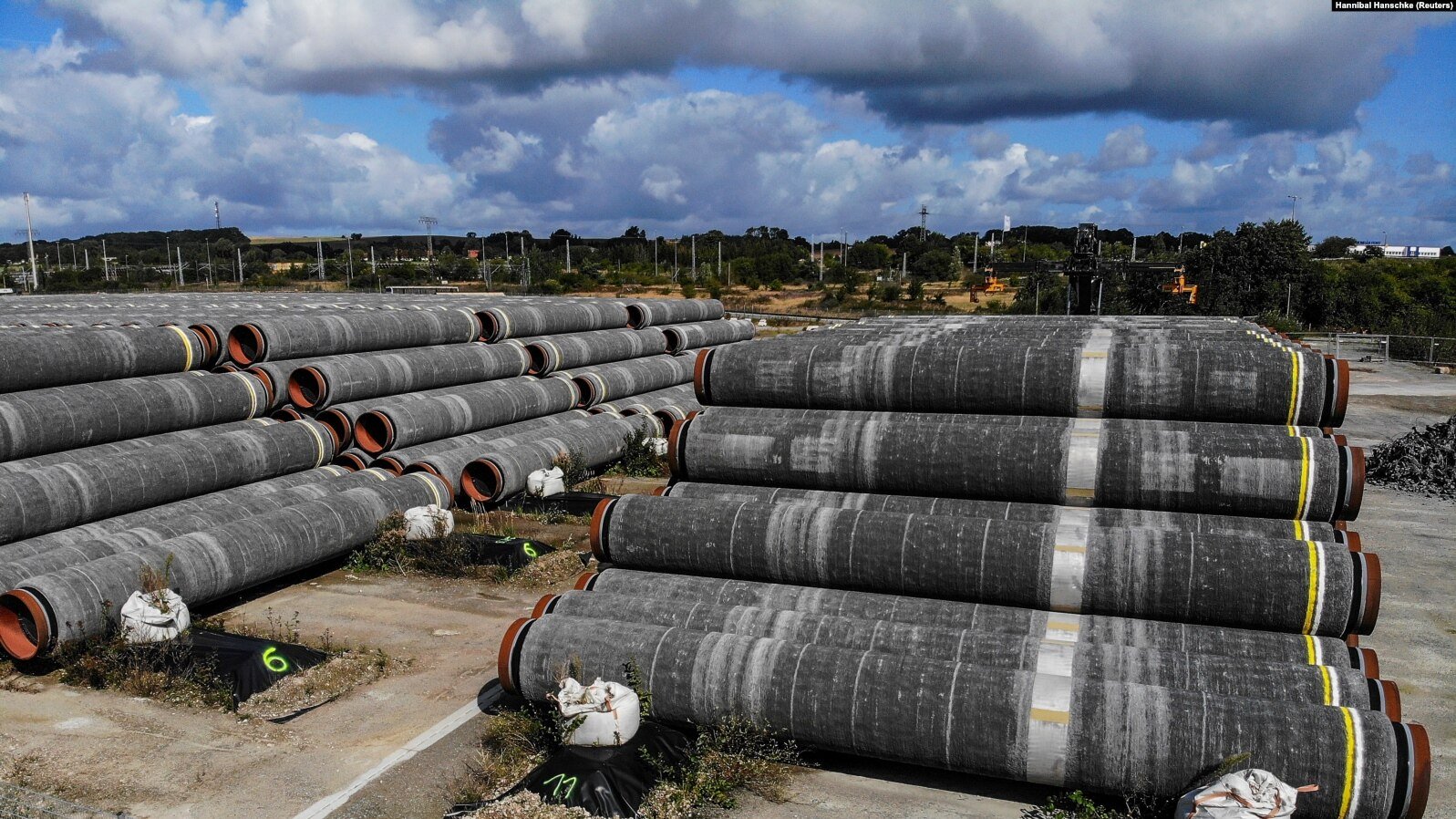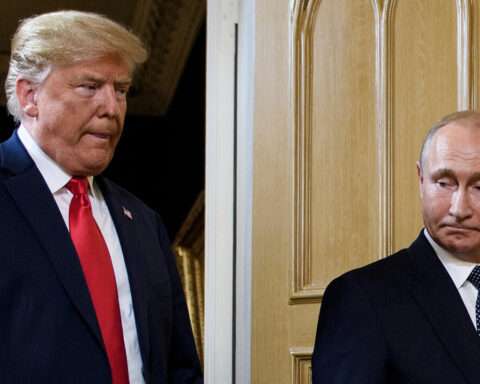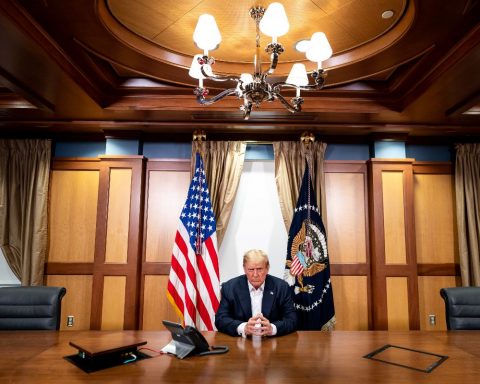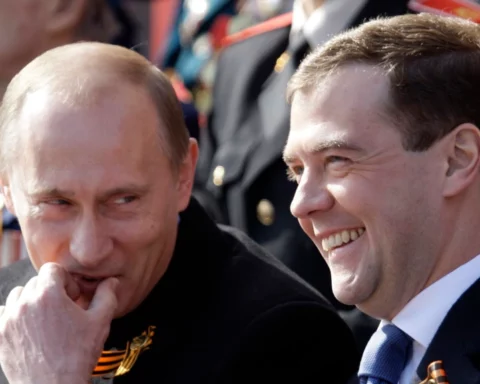RFE/RL – The pipeline would affect Ukraine by depriving it of transit fees from existing pipelines that transverse its territory.
The U.S. Congress last year passed the Protecting Europe’s Energy Security Clarification Act (PEESCA) to widen the list of sanctionable services against the project to include providing insurance, reinsurance, pipeline testing, inspection, and certification services. PEESCA became law on January 1.
“Poland and Ukraine have long warned against the dangers associated with the construction of Nord Stream 2. Our calls for vigilance and boldness were heard in the U.S. Congress, which pressed on with measures designed to stop this dangerous, divisive project,” Kuleba and Rau said in a joint article published in Politico on February 22.
“We call on U.S. President Joe Biden to use all means at his disposal to prevent the project from completion,” the two ministers said.

Some 150 kilometers of pipe under Danish and German waters in the Baltic Sea must be laid to complete the pipeline, controlled by the Russian state-owned energy giant Gazprom. It is expected to carry 100 billion cubic meters of natural gas a year from Russia to Germany.
“On this issue, the U.S. continues to be critically important. It needs to dismiss claims that Nord Stream 2 has become ‘too big to fail’ and that it simply needs to be finished,” they wrote in the article.
“If the project is successful, Russia could try to convince the Ukrainian public that the West doesn’t care about its own principles, and ultimately, about the security and prosperity of Ukraine.”
Nord Stream 2 is “not about the energy security of Germany, our close ally and partner,” Kuleba and Rau said.
“We respect Germany’s right to express their point of view. But we also strongly believe that these kinds of projects cannot be viewed narrowly through the lens of bilateral relations, but should instead be approached from a broader perspective of Europe’s interests and security as a whole,” they said.
The Biden administration on February 19 imposed additional sanctions on a Russian vessel and the ship’s owner for their work on the pipeline.
However, the move was immediately criticized as inadequate by Republican lawmakers, who denounced the administration for failing to impose sanctions on additional targets and demanded the administration explain what it is doing to oppose the completion of the pipeline.
The two foreign ministers warned that “a lot remains at stake” in the project.
“Autocratic rulers in the Kremlin and elsewhere can and should be held accountable. The West, led by the United States, cannot afford to cower in the face of blackmail that runs counter to everything that we stand for,” they concluded.






